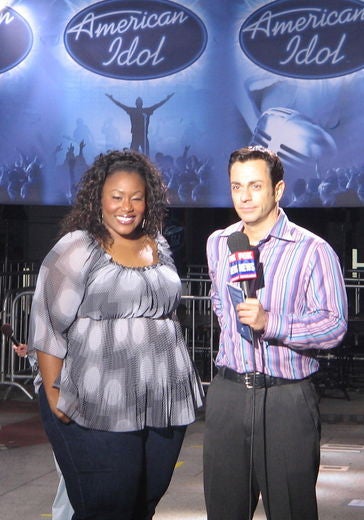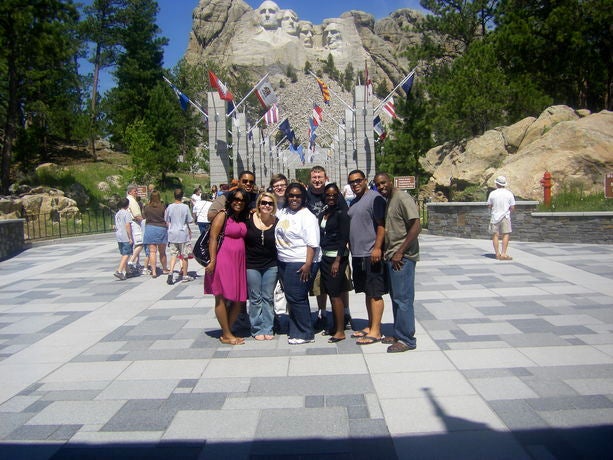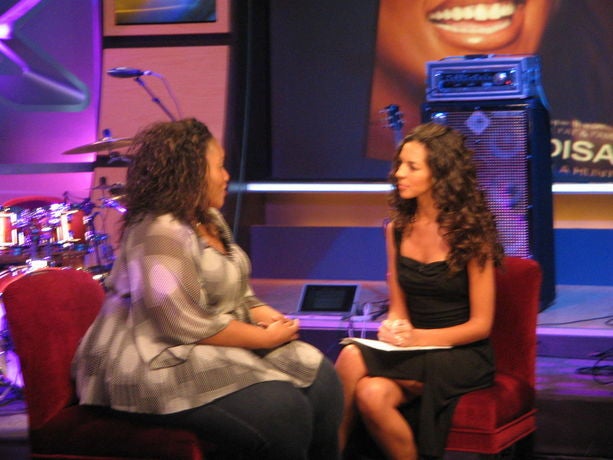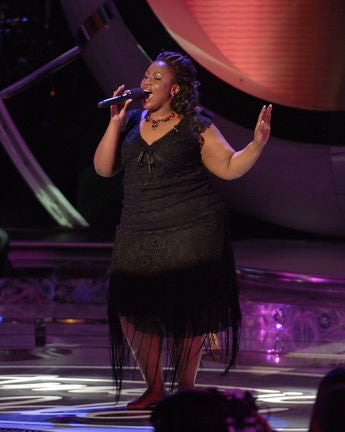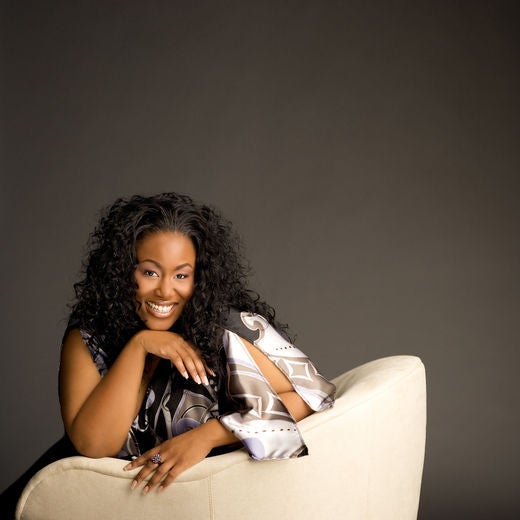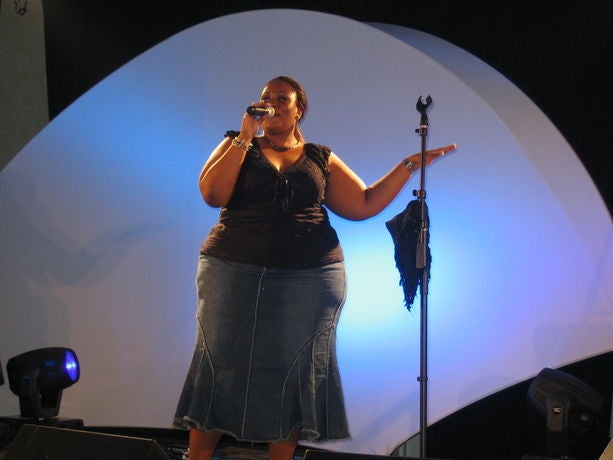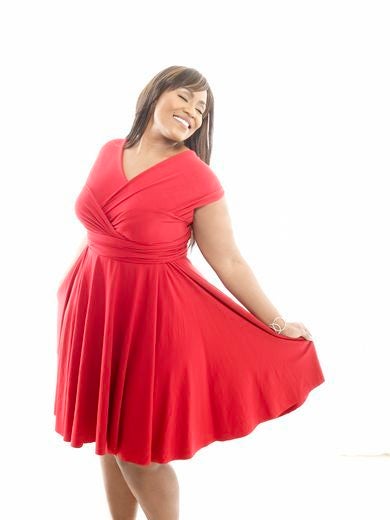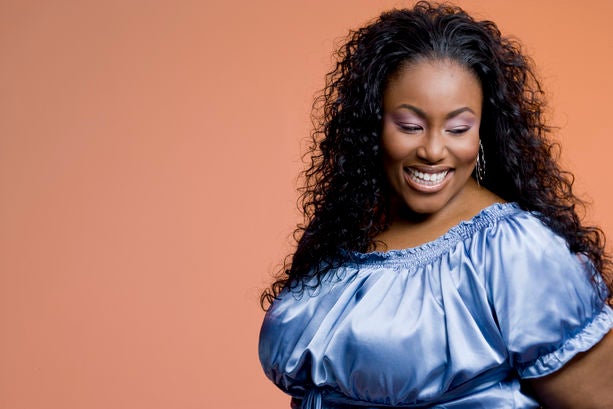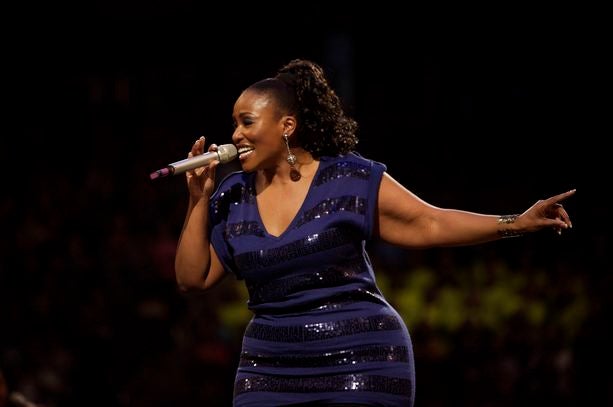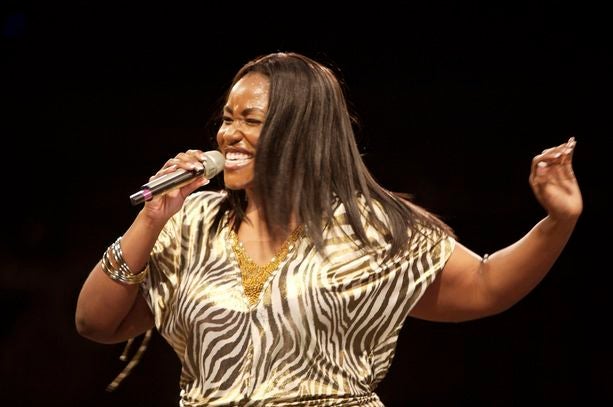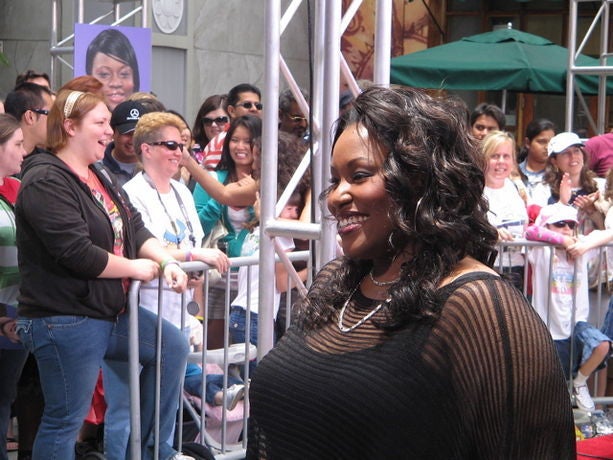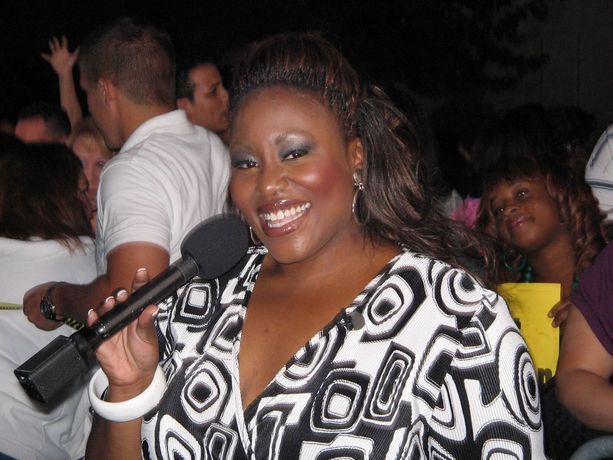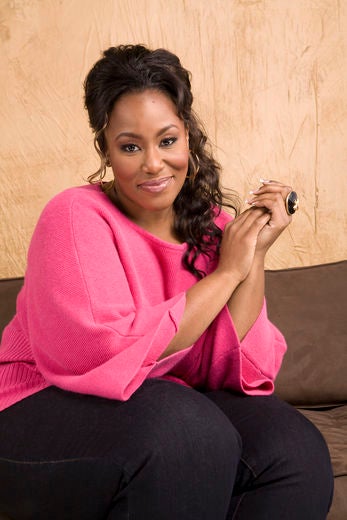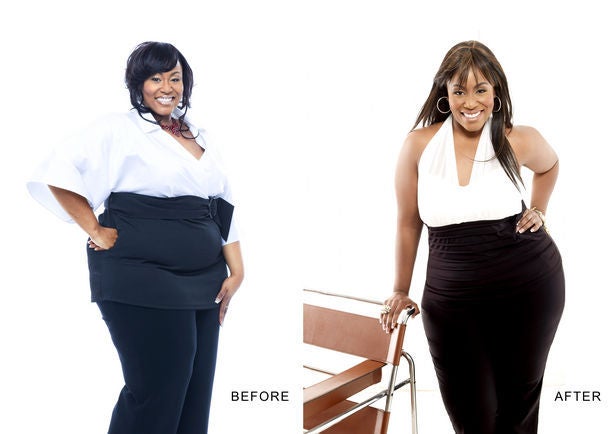Former “American Idol” contestant Mandisa Hundley opens up to ESSENCE.com about her amazing weight loss.
“When I auditioned for ‘American Idol’ Simon Cowell told me I had a pretty face and I was so happy that he didn’t talk about my weight,” says Mandisa. “But when I was home watching the auditions with my friends he made a comment like, ’We’re going to have to build a bigger stage,’ and my heart broke. Right then me and my friends prayed that God would have mercy on him and give me the strength to forgive him and I did.”
Mandisa’s trip to Mt. Rushmore in South Dakota was her divine intervention.
“I remember trying to get up that incline and was having as difficult a time of making that climb as some of the senior citizens that were participating and I was a third of their age!” says Mandisa, 32. “Then I saw the pictures of myself and I didn’t realize that I’d become that heavy and so out of shape. I knew I had to do something.”
For those who’ve been struggling and having too many false starts in their dieting, Mandisa suggests taking it slow.
“Try cutting out soda and drink water instead and have more fruits and vegetables,” says Mandisa.
Mandisa finds peace with not only a healthier body, but mind as well.
“More importantly, beyond healthy eating and exercise is the mental and emotional health,” says Mandisa. “I’m a food addict, and just like an alcoholic, I tend to bury my troubles in something else. So even if I had lost the weight years ago, which I did, it would always come back until I learned to deal with my issues.”
“Don’t be a slave to the scale because your weight can fluctuate anytime, like during a woman’s time of the month or if you have more muscle, then your weight might be higher,” says Mandisa. “I only weigh myself once every two weeks.”
Stop trying to cut fat corners.
“For years I’ve known that fad diets don’t work because I’ve tried every one of them and have lost and regained,” says Mandisa. “This time I hired a personal trainer to get me physically fit, went to a Christian counselor to get my spirit and mind right, and found the root of my weight issues.”
Say no to on-the-go meals.
“My vice has always been fast food and desserts. I used to live on that, so when I tell myself that I’m never going to eat another dessert, then I open myself up for binge eating,” says Mandisa. “So I allow myself a cheat day once a month and my favorite is McDonald’s fries, Wendy’s hamburger and apple a la mode.”
Mandisa is happy with her new size, but changing her look was never the goal.
“This is not about looking a certain way because true beauty is within,” says Mandisa. “For me, it’s about living a healthy life.”
Avoid the up and down in your weight loss journey.
“The most weight I ever lost on the Hallelujah Diet was 70 pounds, which was essentially a vegan diet with no white flour, no dairy, no meat and lots of fruits and vegetables,” says Mandisa. “I tried to convince myself that I could eat like that for the rest of my life but it was a lie.”
“Some people say you can be overweight and healthy, but I can only speak for myself; I was not healthy,” says Mandisa. “I believe that with obesity comes heart problems, diabetes, high blood pressure and cholesterol and a lot of other diseases that are dominant in our culture.”
Stop being a couch potato and move your body.
“The first thing I learned was to exercise consistently,” says Mandisa. “It’s hard work to go from a sedentary to an active lifestyle, but I was motivated and had my mind made up to do this right. I have my trainer come to my home three to five times a week.”
“I own an elliptical [machine] and a treadmill, and I do cardio for 45 minutes on the days I am not with my trainer,” says Mandisa. “When she comes to my house we do 45 minutes of weight training together. As you get older you have to build muscle, and because I’m doing better, my body is taking on a shape and not flab.”
“I don’t really have a weight-loss goal,” says Mandisa, who is 5-feet and 4-inches-tall. “The charts always tell you how much you should weigh depending upon your height, but as Black women we have a different bone structure which allows us to carry weight differently. I just know that I’ll know when I get to a size I feel is appropriate.”
“I used to get panic attacks every time I had to fly because I was so nervous that I’d be asked to pay for an extra seat, so I began traveling with a seat-belt extension,” admits Mandisa. “I cried when I watched Jill Scott’s character in ‘Why Did I Get Married?’ be asked to get off the plane because of her weight. It’s the most awful feeling to watch the expressions of the other passengers hoping that you won’t be seated next to them. It makes you feel like less than a human being.”
Mandisa, who admits that she was an emotional binge eater and slave to every fad diet, says her addiction to food began when her mom and father divorced and she was later molested and raped.
“I’m starting to get a lot of attention, and when I was overweight I always thought I wanted a man to look at me,” says Mandisa. “But it makes me uncomfortable because I’ve always thought of being beautiful as dangerous after what happened to me. I realized that in order to protect myself I made myself less desirable to men by getting heavier. Food substance became my safety.”







Mandisa’s debut novel, “Idol Eyes: My Perspective on Faith, Fat and Fame,” has been receiving a ton of support at her book readings.
“I never told my parents about the abuse,” says Mandisa. “They learned about it after reading the book.”
Mandisa is one of the featured performers at the Women Of Faith Conference’s 20-city concert tour. Her album, “Freedom,” addresses all facets of liberation.
“It’s amazing because when I put this album together I had no idea how poignant it would be to the Women of Faith Conference,” says Mandisa. “All the speakers talk about freeing yourself in one way or another. I too am letting go to look toward a brighter future and better me.”
Since last August, Mandisa has lost a total of 80 pounds, making her average weight loss per month nearly 10 pounds, and she plans to stay on a steady pace of optimal health and exercise.
“I feel like I’ve done the gaining and losing so much that I can’t afford to go back to living that way,” explains Mandisa. “Once I’ve achieved my goal, because I still have a long way to go, I’m done and any rewards I receive from my improved health will be for the rest of my life. It’ll be my personal congratulations to myself on making a [mental] change now.”
